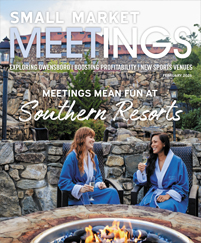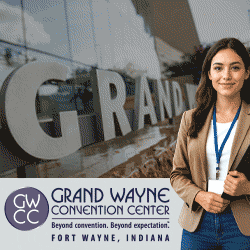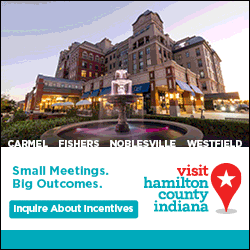Rachel Crick recently spoke with Chase Brunson, the director of branding and events for the Project Management Institute, on why expanding diversity will benefit your business.
Chase Brunson is an event manager who has worked for the Project Management Institute since August 2023. He graduated from Texas A&M University in 2017 with a bachelor’s degree in sports management. He is both a certified meeting planner and digital events strategist. He’s also a diversity, equity and inclusion strategist and expert.
Q: Why is it important for planners to ensure their events are inclusive?
A: Most companies are looking for event attendance numbers, so if we’re not integrating inclusiveness into an event to begin with, we’re losing numbers. It’s not something to use as an afterthought. If we’re not planning ahead, we’re already singling out or telling people they’re not welcome. We’re automatically excluding them and hurting our attendance.
Q: Does the newest generation of planners face any challenges or have any advantages when it comes to planning inclusive events?
A: Our new generation has challenges in the sense we are fighting an uphill battle. I don’t know how many times I’ve heard in my career, ‘this is the way we’ve always done it.’ We have a little bit of a struggle to try to get them to understand why this is important, why these changes need to happen, and why this will give us better events and a better world. We also have a lot of advantages. We’re already existing in these communities, so we’re more aware of them. We’re paying attention to this, and it matters to us.
Q: When it comes to the logistics of event design, from registration to venue choice to catering, how can planners make events more inclusive?
A: Starting with registration is a great example. When we’re asking for information during registration, we’re always trying to collect data, but we have to look at what we’re going to do with the information and how we’re going to use it. For events, I do need people’s legal names, but I can give the option for attendees to enter their preferred names. From an LGBTQ perspective, we need to ask what we can do for bathrooms, pronouns on name badges and preferred names. I take into consideration cultures, too. You should probably have a meditation or prayer room, but they’re also dual purpose in that they give someone time to step away. From a gender perspective, when we’re holding these conferences, men walk around with suits, and they have pockets. At receptions, women are trying to juggle a drink, a plate and a purse, so having a coat check at your event is good. It’s also looking at accessibility of a venue, hiring a disability expert to come with you, so they can say this is or isn’t accessible. There are things like countertop height for check in, how much carpet versus hardwood floors. There’s a whole lot to look at.
Q: How can planners make the content at their events more inclusive?
A: Your content matters a lot. People want to come to events [where] they know they’re going to be welcomed. It’s the same with your event marketing. People want to see themselves, so immediately excluding one group of people is going to make them not want to come. I would make sure your speakers and your content reflect the crowd you’re trying to draw. Same with activities. For example, if you have a 5K and nothing else is going on, you’ve just excluded every person with mobility issues. And I’m a huge proponent that if you have a live event, it should have a virtual component for accessibility. Hybrid events are more complicated but worth it, because you can reach folks [who otherwise] couldn’t come.
Q: If you’re not an expert in planning inclusive events, how can you ensure your event is inclusive?
A: There are people who do trainings. You can hire specialists in certain areas, such as disability specialists. You can have someone come who understands the nuances of what you’re looking for. Use your network and resources to find them. Even though it can cost a little more, the ROI is going to be tenfold. It’s worth putting extra money in your budget to make sure that the event is inclusive. I do think if an event manager doesn’t have experience doing this, they should check out PCMA or MPI. PCMA offers a certification over it. You’ll learn a lot about this. Also, DMOs can be really good allies. You can ask them what vendors are diverse and ask venues who they work with.













